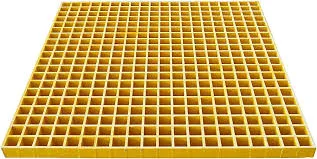
-
 Afrikaans
Afrikaans -
 Albanian
Albanian -
 Amharic
Amharic -
 Arabic
Arabic -
 Armenian
Armenian -
 Azerbaijani
Azerbaijani -
 Basque
Basque -
 Belarusian
Belarusian -
 Bengali
Bengali -
 Bosnian
Bosnian -
 Bulgarian
Bulgarian -
 Catalan
Catalan -
 Cebuano
Cebuano -
 China
China -
 China (Taiwan)
China (Taiwan) -
 Corsican
Corsican -
 Croatian
Croatian -
 Czech
Czech -
 Danish
Danish -
 Dutch
Dutch -
 English
English -
 Esperanto
Esperanto -
 Estonian
Estonian -
 Finnish
Finnish -
 French
French -
 Frisian
Frisian -
 Galician
Galician -
 Georgian
Georgian -
 German
German -
 Greek
Greek -
 Gujarati
Gujarati -
 Haitian Creole
Haitian Creole -
 hausa
hausa -
 hawaiian
hawaiian -
 Hebrew
Hebrew -
 Hindi
Hindi -
 Miao
Miao -
 Hungarian
Hungarian -
 Icelandic
Icelandic -
 igbo
igbo -
 Indonesian
Indonesian -
 irish
irish -
 Italian
Italian -
 Japanese
Japanese -
 Javanese
Javanese -
 Kannada
Kannada -
 kazakh
kazakh -
 Khmer
Khmer -
 Rwandese
Rwandese -
 Korean
Korean -
 Kurdish
Kurdish -
 Kyrgyz
Kyrgyz -
 Lao
Lao -
 Latin
Latin -
 Latvian
Latvian -
 Lithuanian
Lithuanian -
 Luxembourgish
Luxembourgish -
 Macedonian
Macedonian -
 Malgashi
Malgashi -
 Malay
Malay -
 Malayalam
Malayalam -
 Maltese
Maltese -
 Maori
Maori -
 Marathi
Marathi -
 Mongolian
Mongolian -
 Myanmar
Myanmar -
 Nepali
Nepali -
 Norwegian
Norwegian -
 Norwegian
Norwegian -
 Occitan
Occitan -
 Pashto
Pashto -
 Persian
Persian -
 Polish
Polish -
 Portuguese
Portuguese -
 Punjabi
Punjabi -
 Romanian
Romanian -
 Russian
Russian -
 Samoan
Samoan -
 Scottish Gaelic
Scottish Gaelic -
 Serbian
Serbian -
 Sesotho
Sesotho -
 Shona
Shona -
 Sindhi
Sindhi -
 Sinhala
Sinhala -
 Slovak
Slovak -
 Slovenian
Slovenian -
 Somali
Somali -
 Spanish
Spanish -
 Sundanese
Sundanese -
 Swahili
Swahili -
 Swedish
Swedish -
 Tagalog
Tagalog -
 Tajik
Tajik -
 Tamil
Tamil -
 Tatar
Tatar -
 Telugu
Telugu -
 Thai
Thai -
 Turkish
Turkish -
 Turkmen
Turkmen -
 Ukrainian
Ukrainian -
 Urdu
Urdu -
 Uighur
Uighur -
 Uzbek
Uzbek -
 Vietnamese
Vietnamese -
 Welsh
Welsh -
 Bantu
Bantu -
 Yiddish
Yiddish -
 Yoruba
Yoruba -
 Zulu
Zulu
fiberglass elbows
Understanding Fiberglass Elbows Features, Applications, and Benefits
Fiberglass elbows are essential components in various piping systems, primarily used in industries such as chemical processing, wastewater treatment, and oil and gas. These fittings, made from reinforced fiberglass materials, offer several advantages over traditional piping materials, making them a preferred choice for many applications.
One of the defining features of fiberglass elbows is their corrosion resistance. Traditional metal pipes can easily corrode when exposed to harsh chemicals and extreme environmental conditions. Fiberglass, on the other hand, is inherently resistant to a wide range of corrosive agents, enhancing the longevity and reliability of the piping system. This resistance not only minimizes the need for frequent replacements but also reduces maintenance costs over time.
Another significant benefit of fiberglass elbows is their lightweight nature. Compared to metal fittings, fiberglass is substantially lighter, which simplifies the installation process and reduces associated labor costs. The ease of handling fiberglass products also allows for quicker installation, leading to less downtime during maintenance or upgrades.
Transporting fiberglass elbows is also economically favorable due to their lower weight. This not only decreases shipping costs but also makes them easier to maneuver on-site, especially in large-scale industrial settings. Additionally, the structural integrity of fiberglass allows for the manufacturing of elbows in various sizes and configurations, catering to specific project requirements.
fiberglass elbows

Thermal insulation is another area where fiberglass elbows excel
. They have excellent insulating properties, which help in maintaining the temperature of the fluids transported through the pipes. This feature is particularly beneficial in industries that require precise temperature control, as it minimizes heat loss or gain, thus improving process efficiency.Moreover, fiberglass elbows exhibit superior pressure tolerance. They can withstand high-pressure environments without compromising their integrity, making them suitable for high-stress applications. This resilience to pressure, combined with their corrosion resistance, opens up vast possibilities for their use in complex piping systems.
In terms of environmental impact, fiberglass elbows are a sustainable choice. The materials used in their production can often be recycled, and their long lifespan contributes to reducing the frequency of replacements, thereby minimizing waste. This aligns well with growing industry trends focused on sustainability and environmental responsibility.
When selecting fiberglass elbows for a project, it is crucial to consider the specific application and the types of fluids being transported. Having a reliable supplier that can provide quality products tailored to specific needs can significantly enhance overall system performance.
In conclusion, fiberglass elbows represent an innovative solution in modern piping systems, characterized by their durability, lightweight, and resistance to corrosion and extreme temperatures. As industries continue to seek efficiencies and sustainability, fiberglass fittings will likely play an increasingly important role in future infrastructure development. By choosing fiberglass elbows, companies can benefit from reduced maintenance costs, improved efficiency, and a long-lasting solution that stands up to the challenges of demanding environments.
Latest news
-
Exploring the Benefits of Top Hammer Drifter Rods for Enhanced Drilling PerformanceNewsJun.10,2025
-
High-Precision Fiberglass Winding Machine for GRP/FRP Pipe Production – Reliable & Efficient SolutionsNewsJun.10,2025
-
FRP Pipes & Fittings for Shipbuilding - Corrosion-Resistant & LightweightNewsJun.09,2025
-
Premium FRP Flooring Solutions Durable & Slip-ResistantNewsJun.09,2025
-
Premium Fiberglass Rectangular Tanks Durable & Lightweight SolutionNewsJun.09,2025
-
Tapered Drill String Design Guide Durable Performance & UsesNewsJun.09,2025









